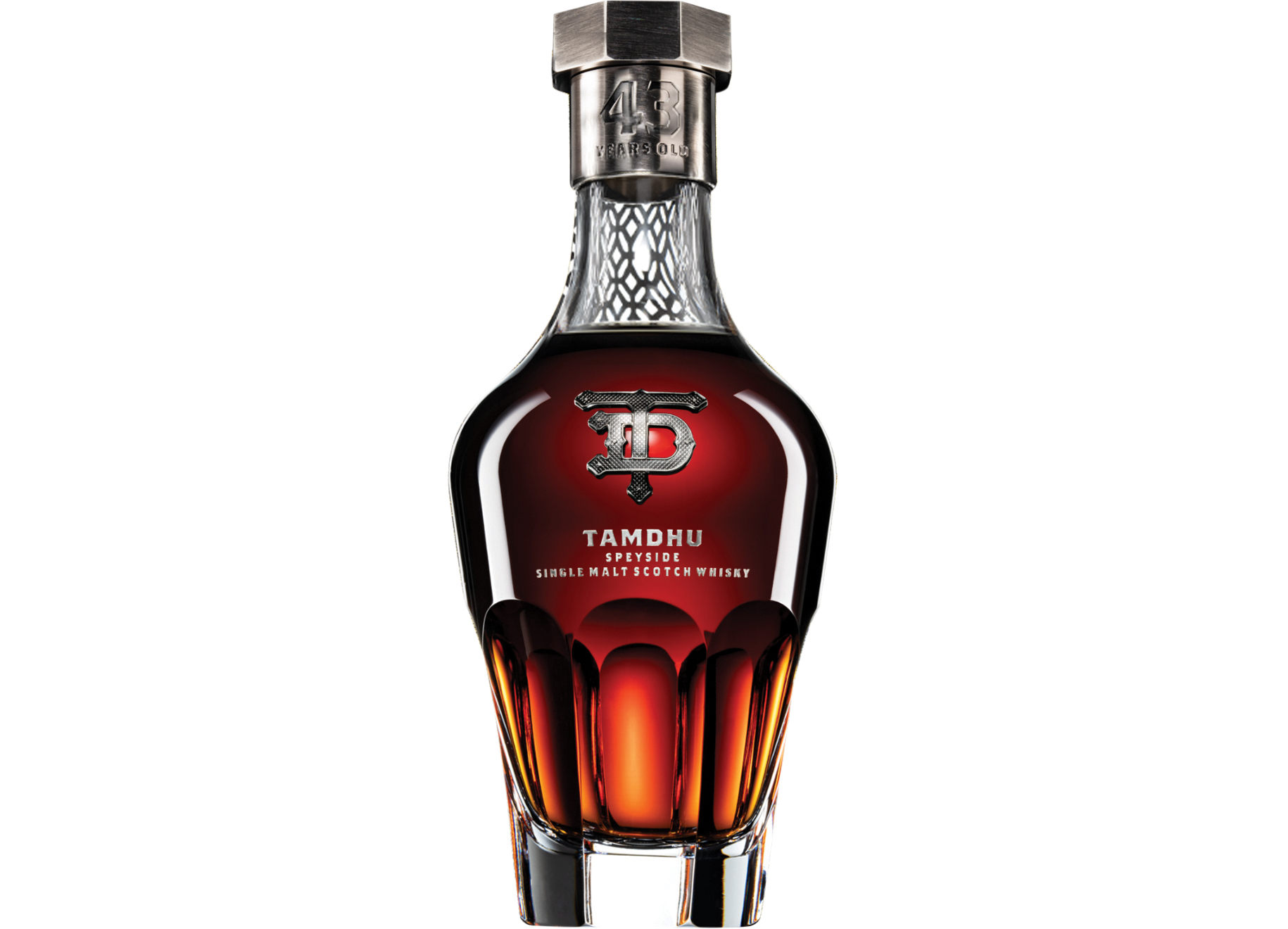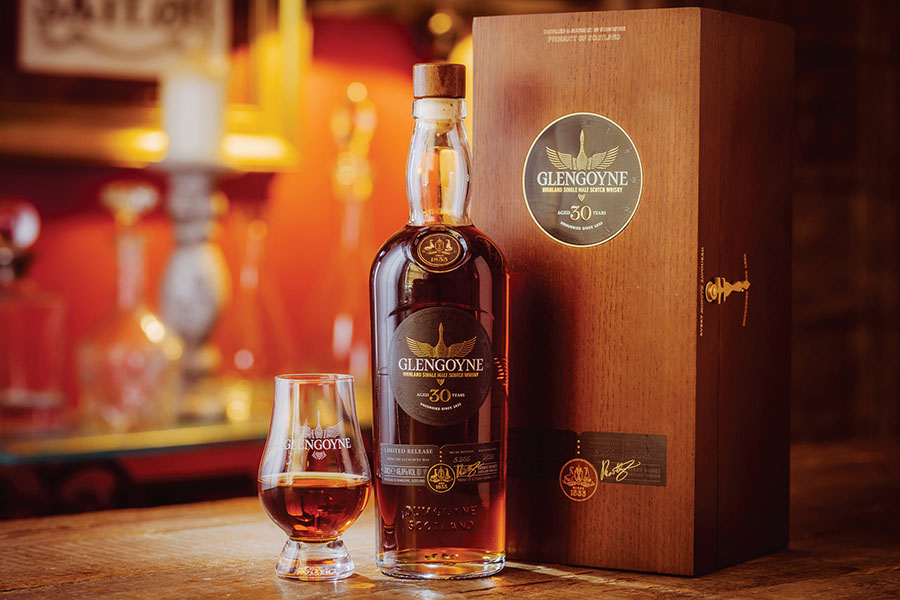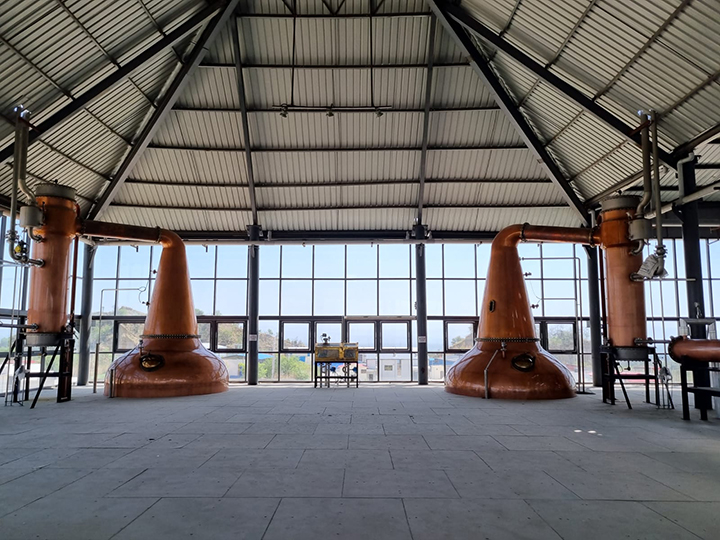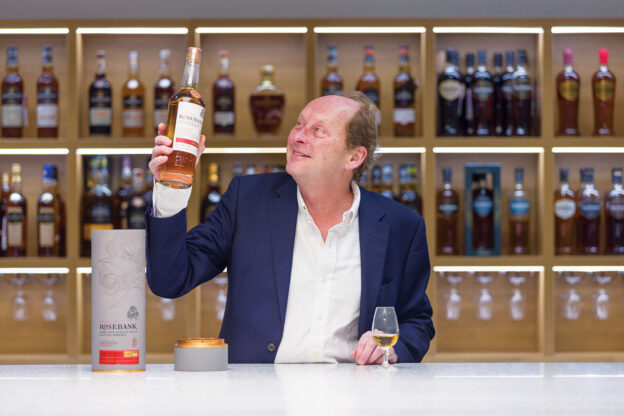Plan to launch exceptional Single Malt from India, date not finalised yet
The Ian MacLeod family, known for their unwavering commitment to excellence, is on the brink of launching a Single Malt from India. Although the launch date remains undecided, the legacy that has driven four generations of the Russell family—the principle that there can be “no compromise on quality”—continues to guide the company. This dedication has positioned Ian MacLeod as the 10th largest Scotch whisky company globally, boasting some of the world’s most renowned brands.
During a recent visit to their distillery in Scotland, I had the opportunity to sit down with Leonard Russell, Managing Director of Ian MacLeod. Our conversation revealed the company’s ambitious plans for India, highlighting the country’s rapidly evolving market, the impressive talent pool, sustainable practices and the exciting new distillery in Una, nestled in the Himalayas.
Trilok Desai in Edinburgh
A Glance Back: The History of Ian MacLeod
Before diving into our conversation, it’s essential to understand the history of Ian MacLeod. Founded on October 1st, 1933, the company traces its roots to Leonard Russell Senior, who established his whisky brokerage in 1936. Three decades later, the Russell family acquired Ian MacLeod & Co Ltd, with Peter Russell taking the helm as Chairman and Leonard Russell as Managing Director. The Russell family’s pursuit of perfection soon earned Ian MacLeod a reputation for producing whisky of exacting standards — because great whisky doesn’t come easily.
Today, after more than 80 years, Ian MacLeod has expanded its footprint to include five distilleries in Scotland, with a sixth under construction in Una, Himachal Pradesh, India. Under Leonard Russell’s leadership, the company has charted a meticulous roadmap for global expansion, focusing on carving a niche rather than pursuing mass production.
Peter Russell, the company’s visionary Chairman, passed away last year, leaving behind an enviable portfolio of 34 products, including Glengoyne, Tamdhu, Smokehead and Edinburgh Gin to name a few. Each of these award-winning brands, though distinct in flavour and character, is crafted with the same passion and commitment to quality.
Passion and Precision
Leonard Russell, who joined the family business in 1989, exudes passion and an unwavering commitment to quality. Under his stewardship, Ian MacLeod has transformed from a spirit blender and whisky broker into a fully integrated distiller, blender, and bottler, acquiring three distilleries—Glengoyne in 2003, Tamdhu in 2011, and Edinburgh Gin in 2016.
So, why is Ian MacLeod venturing into India, especially when they’re already thriving? Russell’s vision is clear: to create a Single Malt brand that will make India proud on the world stage. This venture is not about capturing the mass market but about delighting the discerning Indian consumer who appreciates the unique offerings that India can bring to the table.

India’s Growing Thirst for Single Malt
“India has a large population that favours branded spirits, unlike the Chinese and other Asians who prefer white spirits,” Russell explains. “As the Indian economy develops, so does the taste for Single Malts. India is crying out for the very best single malt whisky, and with our expertise from Scotland, we are poised to meet that demand.”
Although it may seem that Ian MacLeod is a newcomer to India, the company has actually been present in the country for two decades. Now, Russell believes, the timing is perfect. “The demand for the very best is there, and it’s our intention to deliver just that. We’re committed to creating a Single Malt whisky in India, using local ingredients, to satisfy the growing number of consumers who are genuinely interested in quality.”
Russell’s confidence in their India plans is palpable. “We’ve begun distilling some of the finest Single Malts in India, leveraging our expertise in oak casks and warehouse design to ensure that the maturation process is perfect.”
The Road Ahead: Quality Over Speed
When asked about the timeline for launching the new malt, Russell is clear: “We have no plans to reveal a brand launch date just yet. Our priority is to perfect the quality of the whisky. We’re sampling different casks, monitoring the maturation process, and comparing it to our Scotch maturation in Scotland. We’re not in a rush — we’ll launch when the whisky is at its peak.”
While the focus on quality is understandable, there’s no denying the market potential waiting to be tapped. Russell notes, “It’s incredible to see the growth of Indian Single Malts. There are some very good brands emerging from India, and it’s encouraging to see the market develop both domestically and internationally.”
A Distillery in the Himalayas: The Perfect Location
Though tight-lipped about investment figures, Russell expresses his satisfaction with the company’s investment in India. “It went over budget, but if you’re going to do it, you have to do it right.” The distillery in Pandoga, Una, Himachal Pradesh, is nearing completion, and as for the malt, no brand name has been chosen yet. Russell reiterates that their focus is on creating a Single Malt that will make India proud on the world stage.
The distillery’s location aligns perfectly with Ian MacLeod’s sustainable practices as well. “Though small, it’s perfectly formed,” says Russell. “We’re using hydropower from the Sutlej River, and we have access to excellent water sources. My dream is to open the distillery to visitors so they can see how we create exceptional brands.”

A Niche Strategy: Quality Over Quantity
When pressed about the distillery’s capacity and market ambitions, Russell draws an analogy: “Our capacity will be similar to our distilleries in Scotland, like Glengoyne and Rosebank — enough to supply the discerning market, but not too large. We’re not aiming to be mass producers; we’re focused on creating a premium, luxury Single Malt for India that can compete on the world stage.”
Ian MacLeod’s strategy in India is clear and measured. “We’re not going to produce a million cases. If we reach 100,000 or 200,000 cases, we’ll be very happy. For us, it’s not about volume — it’s about ensuring the product is exceptional and winning the confidence of consumers, step by step.”
The Whisky and Scottish Lobsters Analogy
Russell offers a fascinating comparison between whisky maturation and the growth of Scottish lobsters. “A Scottish lobster from the cold northern waters, weighing one kilo, is likely 7 or 8 years old. In contrast, a lobster from warmer southern European waters will be only 1.5 years old at the same weight. Scottish lobsters, like well-matured whisky, develop a deeper, more complex flavour over time. Similarly, our distillery’s location in the cooler Himalayan climate is ideal for slower maturation, which results in a more rounded and complex whisky.”
When I mentioned Pernod Ricard’s construction of Asia’s largest distillery in Nagpur and Diageo’s two Single Malt brands in India, Russell was emphatic: “We’re not looking to be that big. We’re not interested in competing in the IMFL (Indian Made Foreign Liquor) market. We’re focused on creating the best Single Malt, and we have the expertise to do just that.”
Exports and Three Year Maturation
Ian MacLeod has clear plans to export their Indian Single Malt. “Indians love to travel, and there’s a large expatriate community around the world. We certainly have plans to export.”
Russell also emphasizes the importance of adhering to the three-year maturation requirement. “We won’t launch by this Christmas. We’re committed to the legal requirement of three years of maturation, which is standard worldwide. I can wait three years — after all, we wait 12 years for Single Malts in Scotland.”
Russell praises the talent in India, noting that the company is recruiting the best local distillers from Himachal Pradesh. “We’re excited to share our knowledge from Scotland with the team in India, and we’re eager to learn from each other.”

Craftsmanship from Scotland, Tailoured for India
Regarding production equipment, Russell mentions that the stills, which are crucial for creating the flavour in the new spirit, are being precisely crafted in Scotland and shipped to India. “The rest of the production equipment is being made by craftsmen in India to our exact specifications,” he adds.
Russell also stresses the importance of the three-year maturation rule, which is universally accepted in the Scotch Whisky Act and in the US. He expresses a desire to see similar standards applied in India to protect consumers and maintain the integrity of the whisky industry.
Looking ahead, Russell is hopeful that Indian Single Malt distillers will form an association and establish a voluntary code to safeguard consumer trust and the quality of the product.
As our conversation wrapped up, Russell reflected on the challenges and opportunities ahead. “We’re here to create something special—something that will make India proud. And I’m confident that with our experience and commitment to quality, we’ll do just that.”This journey from Scotland to India, steeped in tradition and driven by innovation, is set to bring the world a new Single Malt that reflects the best of both worlds.

